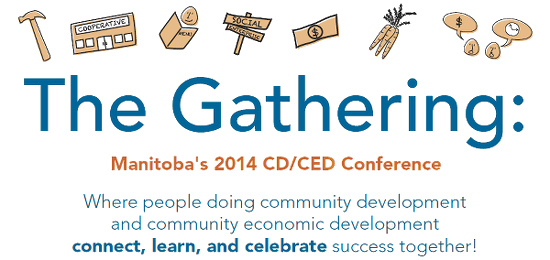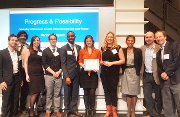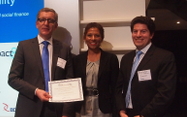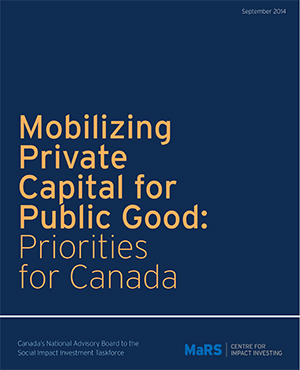Originally published on Tamarack‘s Vibrant Communities Canada blog: http://vibrantcanada.ca/blogs/sherri-torjman/policies-build-caring-community
 This blog is based on the keynote address delivered at the national Seeking Community gathering hosted by the Tamarack Institute in Kitchener-Waterloo in June 2014. The full address and associated slides are forthcoming.
This blog is based on the keynote address delivered at the national Seeking Community gathering hosted by the Tamarack Institute in Kitchener-Waterloo in June 2014. The full address and associated slides are forthcoming.
I was asked to focus my remarks today on the policy dimensions of building community. I would like to first say a few words about policy before proceeding to talk about its role in building (caring) community.
There is often confusion about the meaning of policy. When some people hear the word “policy,” they think police. Here is the government telling me, yet again, where to go and what to do.
Other people think of policy as marketing.1 In their view, it’s all about selling an idea. And to some extent, that’s true. There is an important marketing aspect to policy work. But you first have to develop the idea and design its components. You need to figure out the product before you can sell it. Only then can you make the case for supporting a given policy – whether the goal is poverty reduction, neighbourhood revitalization or welfare reform, to name just a few important areas of concern.
I have worked with other colleagues who say that they “don’t do policy” (read: please don’t bother me with it). But the fact is that public policy is hard to ignore.
Public policy determines the quality of the air we breathe and the water we drink. It affects the food we eat – how it is harvested, where it is distributed and sold, and how much we pay. It controls the way in which we clean and monitor the safety of the water supply.
Transportation is another example of a domain governed by various public policies, most of which are concerned with traveller safety. Public policy also regulates the airwaves by way of licensing. It determines the components of Canada’s tax regime – which combines income, sales and payroll taxes – and their respective levels and purposes.
Social policy – a significant dimension of public policy – plays a vital role in Canada’s society and economy through such programs as child benefits and child care, Employment Insurance, elderly benefits and welfare. Medicare serves as the bedrock of Canadian public policy.
These are just a few examples of how public policy affects us both profoundly and pervasively. It touches virtually every aspect of our lives.
Regardless of domain, public policy can be understood as a deliberate and carefully chosen set of actions that are intended to protect the public interest and to tackle pressing public concerns. At its core, policy development involves the identification of a desired objective and the formulation of the most effective and practicable route(s) to attain that goal.
What is policy?
- Carefully chosen set of actions
- Designed to protect the public interest
- Helps tackle key public problems
- Not just a “government thing”
While governments play the primary role in public policy development, the process of formulating policy is not unique to government. Think about your own organization. There is likely a set of human resource policies that outline the conditions of your employment related to wages, benefits, hours, statutory holidays and, in certain cases, pensions.
Private businesses also formulate policies regarding their employment practices as well as their community relationships. Many companies, for example, have developed corporate social responsibility guidelines to shape their charitable giving.
All organizations operate on the basis of a set of policies. You don’t need government to create policies. But you do need government to create public policies because these affect an entire community, province or territory, or the country as a whole.
In fact, you can understand policies that build community as a cup of coffee (I thought that would be an appropriate analogy for early morning!). Policy is both cup and coffee.

You can’t drink coffee without some form of cup or container. You can’t have a country, province/territory or community without identified borders and boundaries as well as rules that shape the way in which we behave as citizens.
At the same time, you can’t drink coffee if your cup is empty. You need something in that cup. Similarly, a country, province/territory and community all have various programs, services and benefits that serve the public interest.


So public policy is both cup and coffee. It is both context and content. I will be focusing upon both core components in considering policies that support the building of community.
While there are many interventions that build community, they can be understood as falling within the two main categories related to creating the appropriate context and content. The appropriate context involves designing for well-being. The appropriate content focuses primarily upon how we care for each other.
The first component of building community involves creating the coffee cup. It means designing the context and spaces that enable community members to spend time together and to participate as active members. It is based on principles related to clean and green places, mixed use, accessibility and engagement.


The second component of building community involves creating a good brew. It means supporting the various ways in which we care for each other. Governments fund a wide range of services focused on formal supports. Today, I would like to talk about building community through the equally important informal types of care involving families, friends and neighbours. These include personal communities, circles of support, long dinner tables and community celebration.


Governments can’t create effective policies without the engagement of communities and communities won’t have effective policies without the involvement of governments. Policy helps shape the context of the community as well as the content of what it offers. Through public policy, governments enable us to build (caring) community: to design for well-being and to care about each other.

Endnote
1. When I first met Paul Born, President of the Tamarack Institute for Community Engagement, he spoke about policy as marketing.

 Sherri Torjman is Vice-President of the Caledon Institute of Social Policy. Educated at McGill University, she has written in the areas of welfare reform, disability income and supports, caregivers, long-term care, employment policy and community-based poverty reduction. Sherri is the author of the book Shared Space: The Communities Agenda. Check out more of Sherri’s publications on CED here.
Sherri Torjman is Vice-President of the Caledon Institute of Social Policy. Educated at McGill University, she has written in the areas of welfare reform, disability income and supports, caregivers, long-term care, employment policy and community-based poverty reduction. Sherri is the author of the book Shared Space: The Communities Agenda. Check out more of Sherri’s publications on CED here.

 The Canadian CED Network and the Gathering Planning Team work hard to fund this event to ensure accessibility regardless of financial situation. If you’re able to contribute financially, please consider choosing one of the Pay-What-You-Can options, and your payment can be sent to our Winnipeg office. If not, please choose the “attend at no cost” option. Registration will be open until Tuesday, October 21, 11:59pm.
The Canadian CED Network and the Gathering Planning Team work hard to fund this event to ensure accessibility regardless of financial situation. If you’re able to contribute financially, please consider choosing one of the Pay-What-You-Can options, and your payment can be sent to our Winnipeg office. If not, please choose the “attend at no cost” option. Registration will be open until Tuesday, October 21, 11:59pm. Hosted by the Canadian CED Network – Manitoba and planned collectively by over 15 organizations.
Hosted by the Canadian CED Network – Manitoba and planned collectively by over 15 organizations.




 From October 13-19, the
From October 13-19, the 





 The
The 
















 Give your non-profit organization some exercise:
Give your non-profit organization some exercise: Marketing Basics for Non-Profits | Oct. 9
Marketing Basics for Non-Profits | Oct. 9


